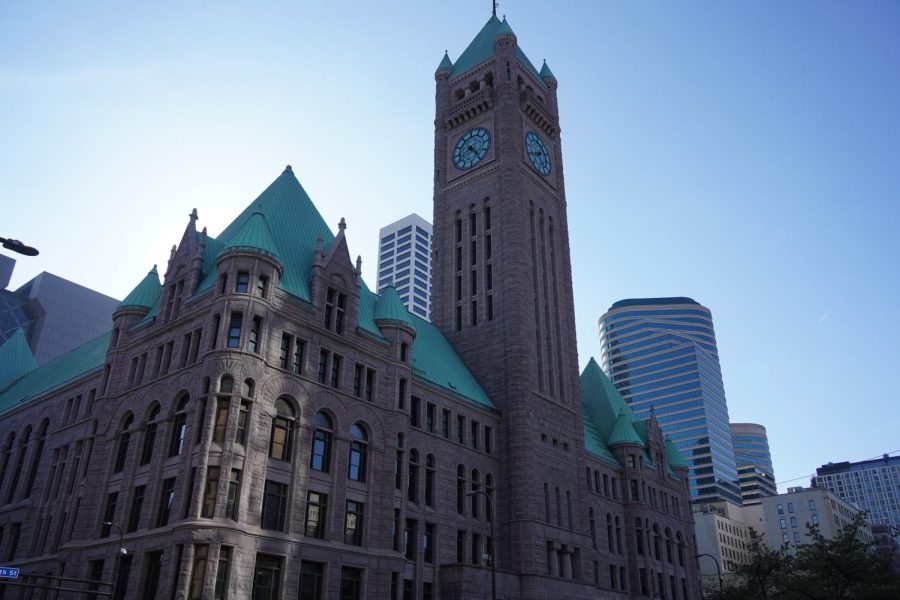In response to rising trends across the country, Minneapolis is working to improve its response to hate crimes with help from the community.
The initiative comes after the Minneapolis City Council advanced a staff directive last fall to evaluate and strengthen the city’s hate crime policies. Since then, city officials across several departments have collaborated to implement changes and conducted public engagement sessions to inform communities on the city’s resources to help victims.
Ward 2 Council Member Robin Wonsley introduced the directive after the Tawfiq Islamic Center, a mosque in Minneapolis’ Seward neighborhood, suffered more than $50,000 in damages from vandalization in September 2022.
“Many of the community members and mosque members all raised concerns with how the city responded, or the lack of response,” Wonsley said. “That made it very clear that we needed to revisit how we approach hate crimes, how we categorize them in the city, and then are transparent in communicating what resources are available.”
Some of the city’s changes include increased efforts to collect evidence such as graffiti and discriminatory language to elevate bias crimes into gross misdemeanors.
Minnesota state law defines a bias crime as a crime committed because of someone’s perceived race, religion, sex, sexual orientation, national origin or disability. Three main crimes can be elevated hate crimes: assault, damage to property or harassment. If Minneapolis can prove a crime was motivated by bias, charges can be elevated to gross misdemeanors and will carry a prison sentence of up to one year.
Additionally, Minneapolis’ mediation program for non-criminal complaints helps victims of hate crimes meet with defendants after charges are filed to resolve hate crime complaints before a full investigation is conducted. Solutions for remediation can include monetary payments, getting a job back or businesses creating anti-discrimination training.
Wonsley said it was important for the Minneapolis Police Department (MPD) to improve their response to hate crimes. MPD is currently discussing plans to establish reality-based training scenarios related to bias crimes.
“MPD did not have any training related to hate crime responses … This is tied to officers knowing how to appropriately decipher and record when a hate crime has happened,” Wonsley said. “That way, other departments can be activated and provide support to those cases.”
The Minneapolis City Council approved a police reform agreement in March that aims to improve officer training programs to eliminate discriminatory police responses. The agreement came almost a year after the Minnesota Department of Human Rights found discriminatory practices within the police department.
Kaela McConnon Diarra, director of Minneapolis’ Civil Rights Complaint Investigations division, said while several city departments have collaborated on the initiative, public engagement is needed to determine what resources communities need.
“Identifying the different tools that we have within the city has been the biggest push up to this point,” McConnon Diarra said. “The next step is going to be coordinating what changes need to be made.”
Minneapolis does not have a “super defined plan” for further improvements to its hate crime response and is relying on community feedback to make resources more accessible, McConnon Diarra said.
However, barriers remain for victims of hate crimes to access resources, according to Miriam Diaz, a victim witness specialist with the city attorney’s office. Diaz said these barriers for hate crime victims often include not seeking resources due to fears of not being believed, retaliation or their identity being outed.
According to Diaz, city officials must be responsible for becoming more aware of hate crimes and understanding how interactions between government and residents impact whether victims seek help.
“There is that side of accountability — I think of cultural barriers and just a lot of mistrust in the legal system that I think staff needs to take accountability for,” Diaz said. “I’m hoping for there to be a lot of learning.”
Increases in hate crime statewide
As Minneapolis tries to provide support to victims, hate crimes are increasing across the state. There were 301 reported hate crime incidents in Minnesota in 2021, a roughly 144% increase from two years earlier, according to the U.S. Department of Justice.
The most common motivations for hate crimes are race or ethnicity, followed by religion, gender and sexual orientation.
David Bernstein is the criminal deputy of the Minneapolis city attorney’s office. Bernstein said he understands that not all victims may feel comfortable coming forward and recognized prosecuting hate crimes is a “big decision” for victims.
However, Bernstein said he hopes the city’s work will provide better outcomes for victims who decide to work with the city and encourage more people to seek help.
“For the people that do want to proceed with prosecution, we want them to feel empowered, we want them to feel supported, we want them to feel safe,” Bernstein said.








